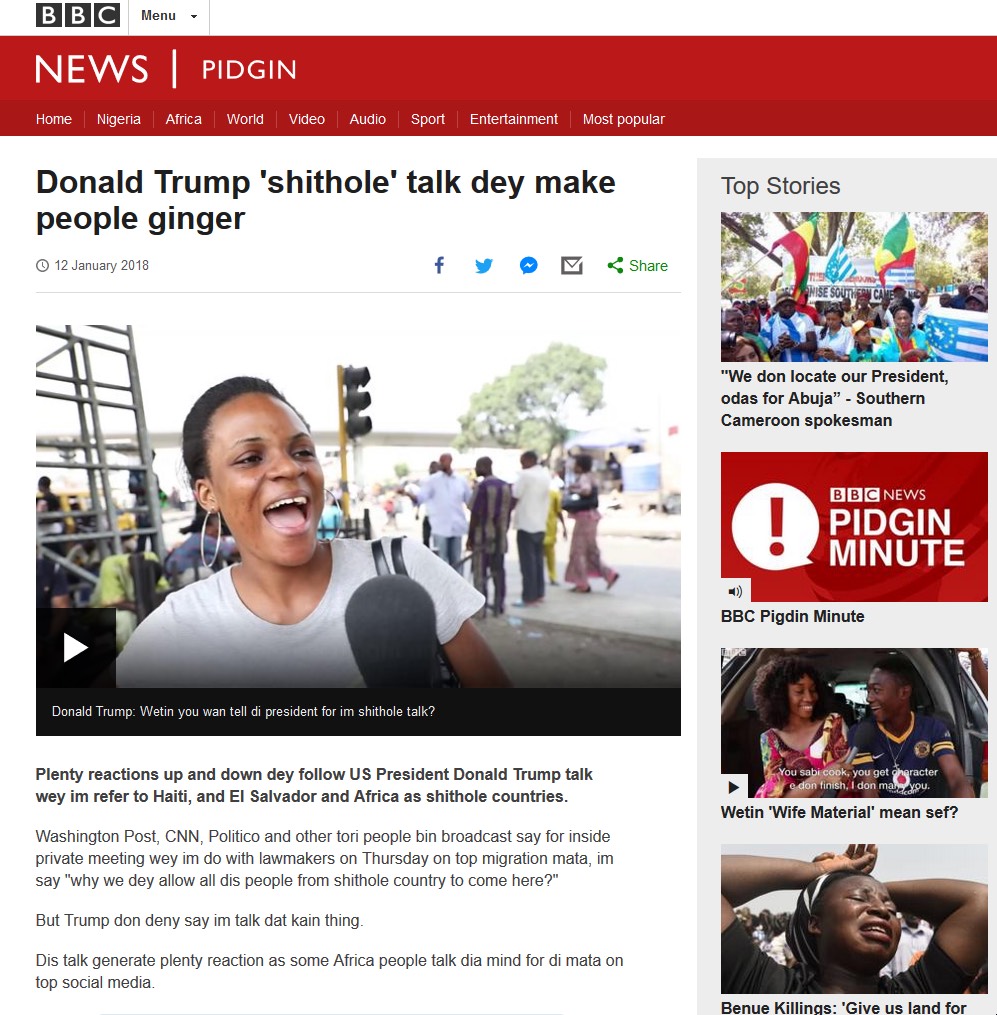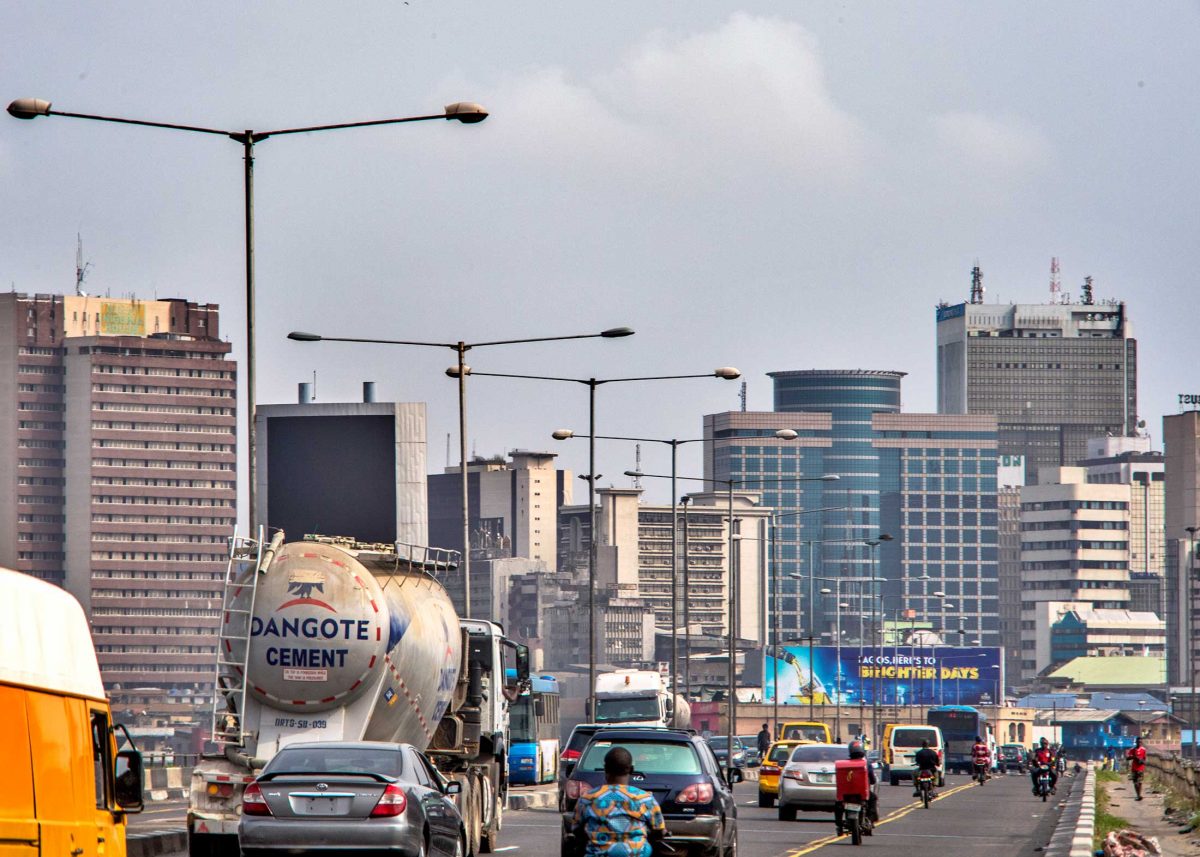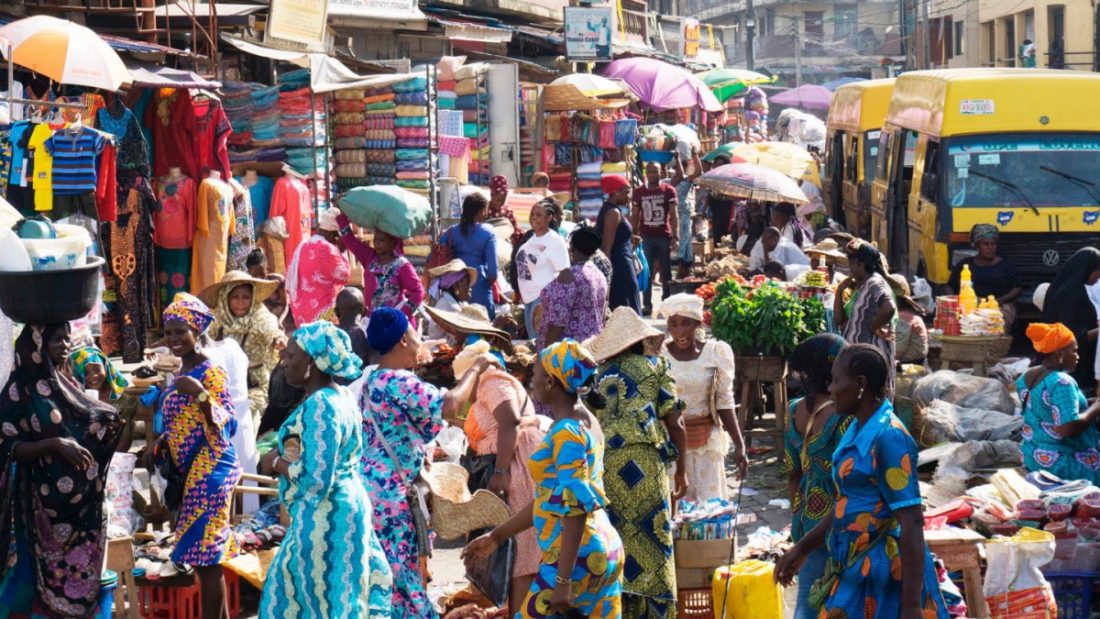[dropcap]N[/dropcap]igeria’s version of Pidgin English is a fascinating mix of the British linguistic legacy, pop culture, and a mishmash of the nation’s diverse tribal and ethnic heritages. The Queen’s English may be the official language of the nation, but it’s not the tongue spoken in the streets and in friendly conversation. We’ll get you started with Pidgin examples and, in the process, we’ll illustrate how the engagement of a translation company and the use of its translation services can extend the markets of Nigerian businesses and reach speakers of Nigeria’s many other languages.
Pidgin’s Place in Nigeria’s Mixed Linguistic Landscape
Pidgin was once seen as a tongue spoken by the uneducated, but today it’s widely spoken among all classes and increasingly popular among the young, writers, Nollywood film producers, Afropop musicians, in education, and even Nigeria’s normally staid politicians.
As Pidgin making its comeback in the local culture, those wishing to communicate eye-to-eye with Nigerians should try to understand its nuances. The launch of a BBC Pidgin English service is a milestone of sorts, reflecting the growing respectability of this once degraded dialect.
When the UK’s Prince Charles visited Africa’s most populous nation during a visit in November 2018, he sprinkled in a few savory phrases in Pidgin English. He said “God don’ butta my bread!” to indicate: “my wish has been granted.” He also adapted the saying about lemons and lemonade when observing that “If life dey shows you pepper, my guy make pepper soup!”

The same can be said about Nigeria’s linguistic soup. It’s a country that is home to 520 languages and dialects! Hausa is the main language of the country’s Muslims. 20 million people speak it natively, another 5-10 million as a second or third language. That’s just 10-15% of the country’s population! In second place is Igbo, with some 23 million native speakers. Yoruba comes in third with 20 million speaking it as a mother tongue.
English is spoken by at most 60 million people –most speaking Pidgin. In fact, most Nigerians speak only a smattering — a smidgen — of Pidgin. Pidgin serves as a compromise language for bridging language gaps among the more Westernised segments of the population. Most big app players ranking in the stores localise to Hausa for the local market. But that means they are mostly reaching Nigerian Muslims, not others. Pidgin is a great place to start.
10 Pidgin Phrases You Must Know, and Their Translation
So Pidgin is a kind of bridgin’ between people who don’t share a common native tongue. So let’s extend that bridge with basic building blocks for our venture into this vibrant vernacular.
- How far? That’s the casual Pidgin way to say hello to someone close and familiar. Use it freely.
- I wan chop. That’s the Pidgin way to express a desire to eat, hunger, but it can have cruder meanings as well.
- No wahala means No Problem. No Big Deal. It’s taken care of.
- Dash me. Both are imperatives to give something. And give it freely, generously! Alt: Gift me!
- Mumu. Means local, someone from the ‘hood. Used with “price” to refer to a lower cost for a local.
- Oyimbo refers to foreigners. It’s not necessarily derogatory, just descriptive.
- Abi? is a confirmation question like “Right?” Or “OK?” You’ll hear it a lot.
- Abeg is a plaintive or pleading sort of request: “please” do something…. Like “I beg you”….
- Na wa is an expression of amazement. Add an “oooo” at the end for emphasis.
- Waka is not a friendly thing to say. It means “get out of my face” or something even cruder.
How Language Translation Companies Can Help Outsiders Reach More Nigerians

Now that you speak a smidgen of pidgin, we can get down to bigger business. Which companies need translation services, whether to or from Pidgin English or one of Nigeria’s other languages? The quick answer is any organisation in Nigeria or communicating with it. But especially relevant are digital content marketing services like mobile apps.
2018 statistics indicate that Nigeria has more than 170 million mobile cellular subscriptions. In a nation of nearly 200 million, that’s impressive, but the rapid growth rate suggests that the saturation point has not yet been reached. Foreign app developers have a clear economic interest to reach these underserved linguistic sectors.
A no-brainer, in addition to supporting Pidgin, is to localise for Hausa to reach Nigeria’s Muslims. But then consider some of the other languages that are the mother tongues of tens of millions of young Nigerians. Igbo and Yoruba top the list. Developers localising in these languages may reach audiences other companies are not serving.
The entry point to these ethnic markets is through translation companies, also called localisation agencies. What is a translation company and what does it do? A translation company takes content assets and, through adaptation of your content to local standards, makes them available to a different regional or ethnic target audience.
Such companies provide more than just a language translator or document translation services. The overarching goal is to create a globalised web site or mobile app, where a menu selection will take visitors to a “local” version in their preferred language and adapted to their cultural preferences. They want to make the website or app user feel “at home”.
How Translation Companies Can Help Nigerian Business Reach the World

The translation process also goes in the other direction. Nigerian companies targeting the world need help in achieving quality translation into various local markets. Many questions arise: How to find the best translation company? What is the best online translation service?
There’s no “right” answer. Some companies will provide a certified translation, while others ignore certification. Some will rely on machine translation, using various software services to expedite the process and speed up delivery. Be careful: machine translation services have come a long way, but can’t equal human translation in terms of sensitivity to local nuances.
How do you get started with translation agencies? Google them, and keep an eye out for companies with explicit knowledge of Nigeria. Email them describing your marketing challenge and the digital assets you need to localise. You should get back, at no cost, a price proposal and a timetable. The more respectable agencies will provide a guarantee on your work. Interact with the agencies and negotiate the best possible terms. No wahala! Not a problem. Abi? OK!







